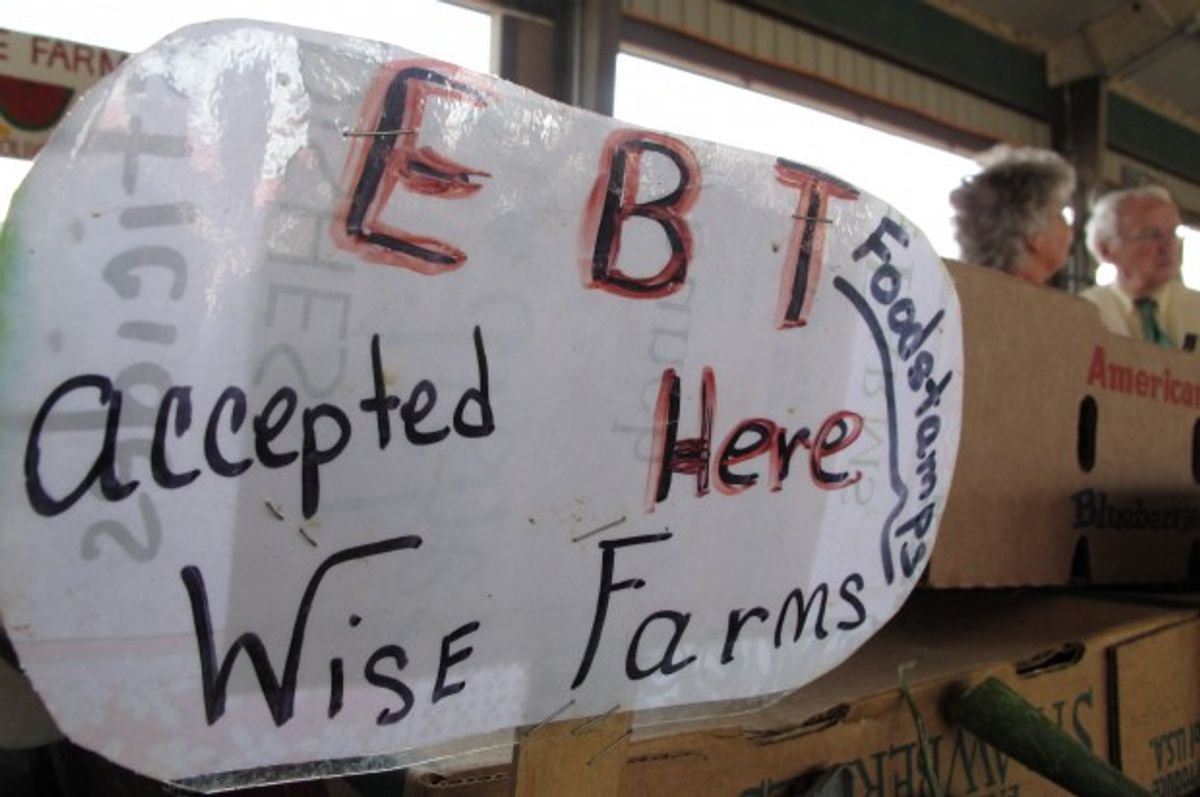 Blue Apron but for the poor. On the heels of a $1.5 trillion tax cut for multinational corporations and the richest tenth of the 1 percent, it's a proposal so transparent in its contempt for lower-income earners that few public officials would consider it, much less pitch it to the public. Then again, Office of Management and Budget Director Mick Mulvaney is not most public officials.
Blue Apron but for the poor. On the heels of a $1.5 trillion tax cut for multinational corporations and the richest tenth of the 1 percent, it's a proposal so transparent in its contempt for lower-income earners that few public officials would consider it, much less pitch it to the public. Then again, Office of Management and Budget Director Mick Mulvaney is not most public officials.
According to the Washington Post, the Trump administration aims to roll back the federal food stamps program, embracing what Jim Weill, president of the Food Research and Action Center, calls a "Depression-era approach" to fighting hunger. Rather than receive paper coupons or credit toward an EBT card, as many as 81 percent of SNAP recipients would be issued "America's Harvest Boxes" approved by the USDA, each containing nonperishable food items like shelf-stable milk, juice, grains, cereals, pasta, peanut butter and beans, as well as canned meat, fruits and vegetables.
“What we do is propose that for folks who are on food stamps, part — not all, part — of their benefits come in the actual sort of — and I don't want to steal somebody's copyright — but a Blue Apron-type program where you actually receive the food instead of receive the cash,” Mulvaney told the White House press corps during a Monday briefing. “It lowers the cost to us because we can buy [at wholesale prices] whereas they have to buy it at retail. It also makes sure they're getting nutritious food. So we're pretty excited about that."
Where to begin? While a meal on food stamps costs $1.37, the average order from Blue Apron's meal-kit delivery service runs upwards of $10 per person. Blue Apron also allows its customers to purchase from a menu of eight meals, including fresh fish, meat and produce — a privilege neither the president nor his budget director believes the poor are entitled to.
Adding potential injury to insult, Mulvaney makes no mention of how the Harvest Box plan will address the individual dietary restrictions of millions of Americans. Nor does he explain how canned meats and produce, which are typically loaded with preservatives, will meet the nutritional needs of their recipients.
The proposal would likely upend the supermarket industry, with chains like Walmart, Target and Aldi losing billions in food stamp payments. Unsurprisingly, the Food Marketing Institute, a lobbying group for grocery stores, has called the boxed meals "expensive, inefficient and unlikely to generate any long-term government savings."
Blue Apron itself has not been without its detractors. As the Post notes, the company "saw its customer base contract in 2017. A recent report by the market research firm Datassential found that four in 10 lapsed meal-kit subscribers dropped their service because they were too costly."
The Trump administration's latest budget proposal is almost certainly dead on arrival. But as long as the GOP controls all three branches of government, no social welfare program is safe and no prospective cut is too shameless.



Shares